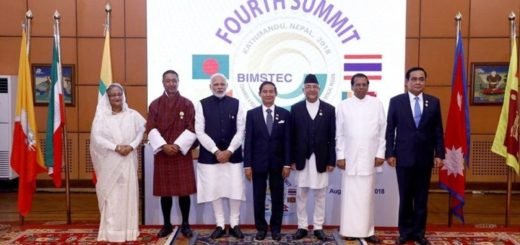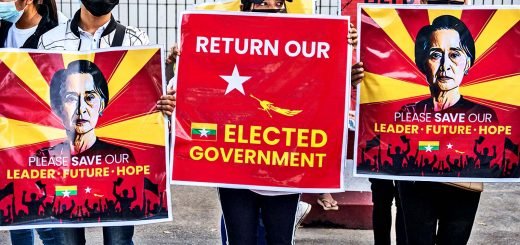Myanmar’s Military coup, Power-transition & State of Emergency
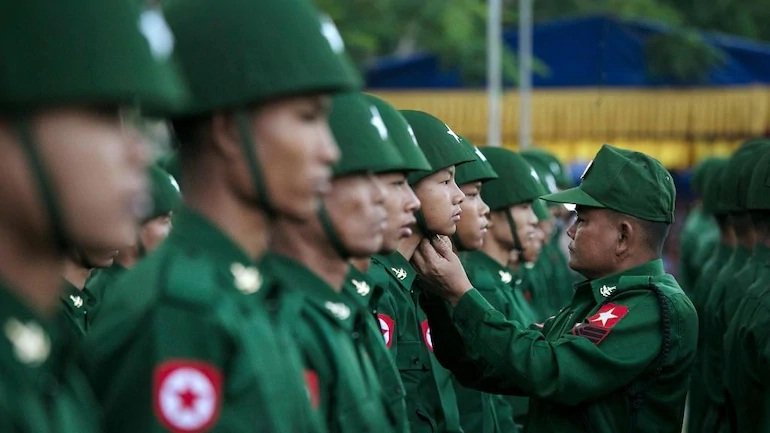
The first day of February staggered Southeast Asia after Aung San Suu Kyi, leader of Myanmar, was detained together with other key officials of her governing party in a morning raid by military calling November 2020 elections “fraudulent”. The internet connections and communication services were shut down and have been disrupted while the state broadcaster MRTV said it’s having technical issues and is off air. Now, all eyes are on Myanmar’s powerful military chief, Senior General Min Aung Hlaing as he seizes power.
Myanmar’s military has taken power after arresting civilian leader Aung San Suu Kyi and other senior members of her ruling party, National League for Democracy (NLD). Proclaiming one-year state of emergency on military TV, the top army commander has grasped all jurisdiction under his control and announced the takeover of the country for a year in times of national emergency. This comes a decade after the military agreed to hand power to a civilian government back in 2011.
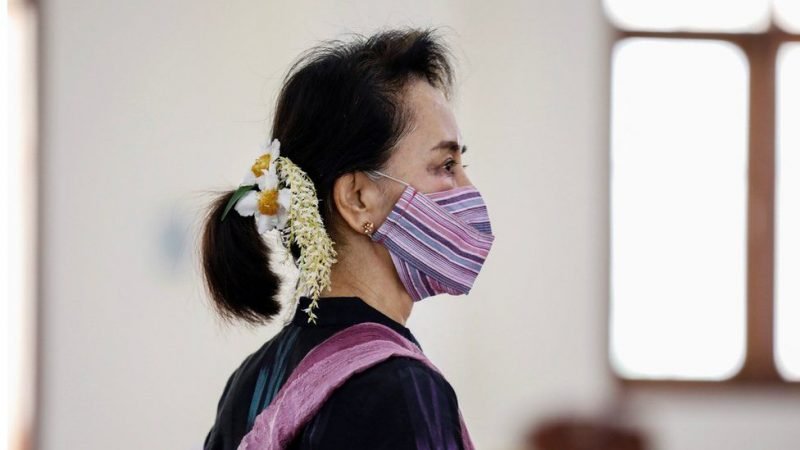
Who is Myanmar’s Aung San Suu Kyi?
Myanmar, also known as Burma, gained independence from British colonial rule in 1948, was ruled by the armed regimes till 2011. It was the democratic reforms spearheaded by Aung San Suu Kyi that ended military rule in the country. The NLD won 83% of available seats in the November,2020 election. Many saw it as a referendum on Suu Kyi’s civilian government. It was just the second of its kind since the end of military rule in 2011 but the military has disrupted the results many times before threatening of a coup and so it did.
Suu Kyi, once viewed as a beacon for human rights – in 1991, was awarded the Nobel Peace Prize, while under house arrest for around 15 years between 1989 and 2010. She’s the daughter of the Myanmar’s independence hero, General Aung San. In the past few years, her leadership came to a light when the maltreatment of the country’s mostly Muslim Rohingya minority by army crackdown sparked by deadly attacks on police stations in Rakhine state was a prevailing concern for the international community. Following that Aung San Suu Kyi’s was deplored and was accused of doing nothing to stop rape, murder and possible genocide by refusing to condemn the military or acknowledge accounts of atrocities. Nonetheless, she is also known as “the Lady”and is popular and admired among the Buddhist majority of the country.
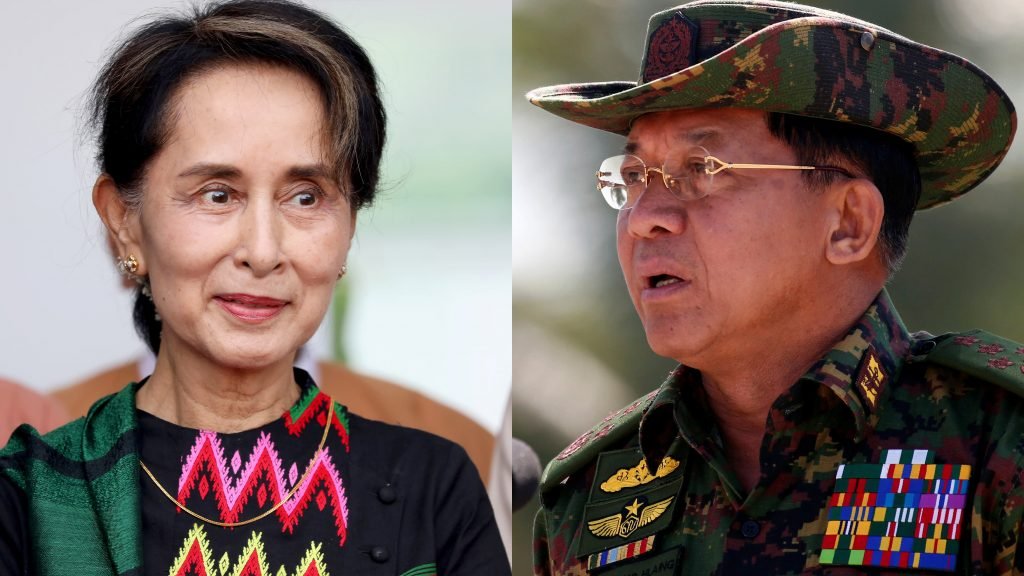
Military reverts to its old strong-arm behaviour – and the country takes a major step backwards
The coup has sent a tremble of fear through the country, which undergone almost 50 years of control under autocratic military regimes before moving towards democratic rule in 2011. The early morning detentions of state counsellor Aung San Suu Kyi and other politicians were all reminiscing of days many expected they had left behind. The coup came after a landslide victory in November 2020 elections Suu Kyi’s National League for Democracy (NLD). For the past five years, State Counsellor Suu Kyi and her NLD party were leading the country after being elected in 2011 in the first elections held in country, then again in 2015 with the freest and fairest votes. On Monday morning, had the incident not took place, the party was to begin its second term in office. However, as the development came, Myanmar leader had urged her supporters to “not to accept this” and to “protest against the coup”. In a letter she says the military’s moves are putting the country back under dictatorship.
While on the backstage, the military is having nearly a tight grip on Myanmar. Military in Myanmar holds tremendous sway over the government thanks to the controversial 2008 constitution framed up during Junta Rule. A constitution which not only guarantees military a quarter of parliamentary seats but also a control of the country’s most powerful key ministries – home affairs, defence and border affairs. So, until the constitution remains the same, the military will be retaining some control over the people, government and the country. But the Constitutional amendment is unlikely. Even the NLD, with its majority couldn’t have done so. As that will require 75% parliamentarians’ support – an almost unattainable task when the military already controls at least 25%. And that’s the reality for the time being and the people in Myanmar are bearing that.
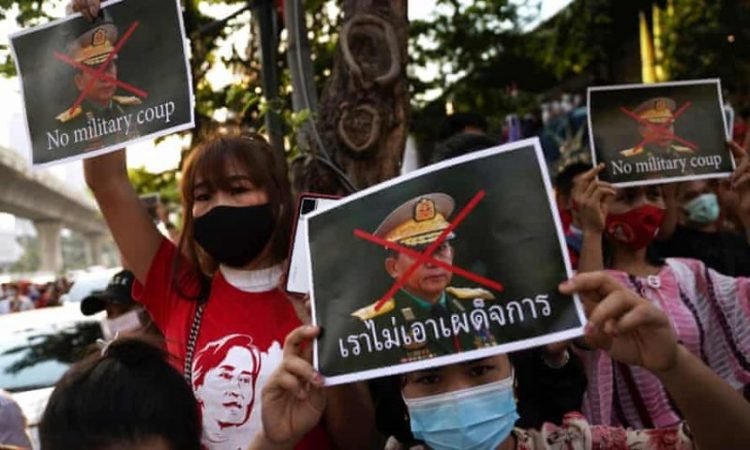
What does the future hold?
Indeed, experts seem to appear apprehensive of the military’s actions, as there seems little to gain. For the moment military’s action appears reckless and hard to fathom putting Myanmar on a perilous path. Besides, there’s still anticipation that this can be resolved through negotiation. On other hand, if one starts seeing major protests beginning, then Myanmar can be seen being into a major crisis as an election in which 70% of voters defied the Covid-19 pandemic to vote so overwhelmingly for Aung San Suu Kyi. And public anger has already started over a coup soon after the arrest of Aung San Suu Kyi. Protests has erupted in and outside Myanmar in support of Aung San Suu Kyi and her government, in support of democracy, rule of law.
What has the reaction been?
The United States condemning the coup, Washington said that it “opposes any attempt to alter the outcome of recent elections or impede Myanmar’s democratic transition”. Prime Minister of United Kingdom, Boris Johnson too condemned the coup and called Aung San Suu Kyi’s imprisonment “unlawful” and urges for “peaceful dialogue”.
United Nations condemning detention, stated it as “serious blow to democratic reforms in Myanmar.” Ministry of External Affairs in its statement noted the developments in Myanmar with deep concerns and said that New Delhi closely monitoring the situation and is hopeful that the democratic process and rule of law be upheld.



